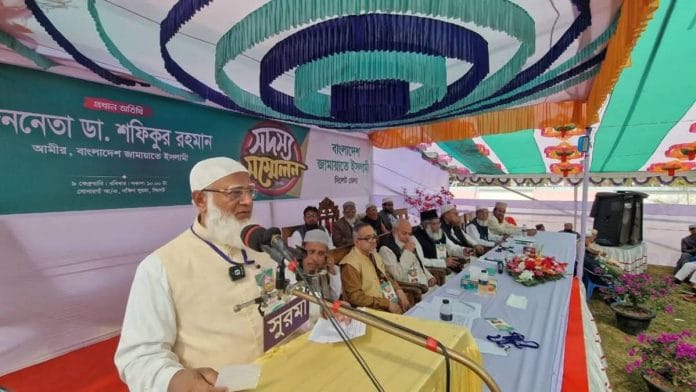Bangladesh’s political landscape just got a jolt. And not the usual smooth, cosmetic sort.
This month’s Dhaka University elections produced a result that left seasoned political watchers blinking into their tea— Jamaat-e-Islami’s student wing, Islami Chhatra Shibir (ICS), swept the board, winning 23 of 28 posts.
Cue the chorus. First out of the gate was the ever-eloquent Shashi Tharoor, branding the result “worrying” — swiftly echoed by a line-up of former diplomats and Twitter generals.
Let’s all breathe.
If India doesn’t start reading the finer print of Bangladesh’s shifting political mood, it risks sounding less like a seasoned neighbour and more like an anxious uncle muttering at a family wedding about some old crocks.
Not quite the apocalypse
ICS’s victory is notable, but it’s not a prelude to theocratic takeover.
Jamaat-e-Islami has a controversial history, particularly for its role as collaborators of the Pakistan Army during the 1971 Liberation War. But the ICS in 2025 is not a ghost of 1971. Its campaign wasn’t cloaked in ideology; it focused on pedestrian, relatable issues: problems in the dormitories, campus safety, and student rights. For many voters, the choice was less about endorsing Jamaat’s past and more about rejecting the status quo. Which, if you’ve looked at Bangladesh’s current political menu, is a rather understandable impulse.
Jamaat itself has evolved — or at least adapted. During ousted PM Sheikh Hasina’s rule, it was pushed to the margins, deregistered, persecuted, and, before the July uprising of last year, wasn’t even allowed to hold rallies. In the process, it’s acquired a rather unexpected political asset: victimhood. And in Bangladesh, where political battles are often framed in life-or-death terms, that’s not nothing.
Add to that the fact that for many young voters, Jamaat is just a political party that hasn’t (yet) had the chance to disappoint them. That’s a low bar — and it might be just enough in Bangladesh’s political climate.
Jamaat owes, at least part of its good fortune to Bangladesh’s main political party, the BNP, which has been self-sabotaging.
Between endless infighting, corruption allegations, and an inability to articulate a future-facing agenda, the BNP is now just loud, nostalgic, and irrelevant.
Its apparent collapse has created a vacuum. Jamaat, still organisationally disciplined and relatively scandal-free in recent years, has stepped into the space. In this context, ICS’s win looks like a political version of “anyone but the usual lot”.
Also read: US deep state’s involvement in Nepal, Bangladesh is an absurd conspiracy theory
New Delhi’s reaction
Not everything in South Asia is about Pakistan, extremism, or the ghosts of Partition. Bangladesh’s politics has its own rhythms, resentments, and realities — and they don’t always match everyone’s preferences. This seems to come as a surprise every few years.
Of course, India’s interests in Bangladesh are real and legitimate: trade, water sharing, cross-border security, and— of course— the stability of the Northeast India.
But the real danger for India isn’t the DUCSU election result. It’s the tone in which some in India are responding to it.
By loudly wringing its hands over the ICS result, India risks alienating exactly the segment of Bangladesh’s population it should be engaging with: the young, the politically alert, the disillusioned middle.
Many young Bangladeshis regard India’s unwavering support for Sheikh Hasina’s Awami League — a party accused of murder, extrajudicial killings and brutal crackdowns — with deepening mistrust. Telling a new generation that their vote is “worrying” because it doesn’t align with one’s expectations is hardly a smart diplomatic move. Nobody, after all, enjoys being lectured by the neighbour.
A wake-up call
ICS’s DUCSU win is indeed a wake-up call. But not about creeping Islamism or imminent extremism. It’s about the choices voters make when they feel left behind, ignored, or patronised.
If India wants a long-term, people-centric relationship with Bangladesh, it needs to shift gears — from paternalism to partnership, from anxiety to nuance. More dialogue.
If this election proves anything, it’s that Bangladesh is quite content listening to its own people — and not waiting for wisdom to descend from an Indian parliamentarian from Thiruvananthapuram.
Scandalous, really.
Ahmede Hussain is a Bangladeshi writer and journalist. He is the editor of ‘The New Anthem: The Subcontinent in Its Own Words’ (Tranquebar Press; Delhi). He has just finished writing his first novel. He tweets @ahmedehussain. Views are personal.
(Edited by Ratan Priya)






